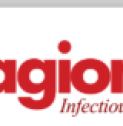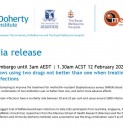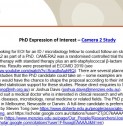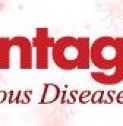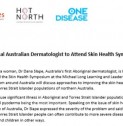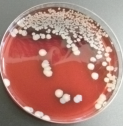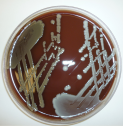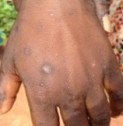Staphylococcus aureus (golden staph) is a major cause of community and hospital acquired infections. These infections range from uncomplicated skin and soft tissue infections (including widespread skin sores in remote Indigenous communities) to severe invasive bloodstream infections. Golden staph also causes post-surgical infections (e.g., infections following hip and knee joint replacement surgery).
Staphylococcus aureus is the most commonly isolated bacterium at the Royal Darwin Hospital.
Our research focus:
- To apply cutting-edge bacterial genomic technologies to Staphylococcus aureus to understand the transmission and population structure of the most prevalent types in Northern Australia
-
To improve treatments for severe S. aureus infections:
- We are leading a multicentre randomised controlled trial on alternative treatments for MRSA (resistant golden staph) bloodstream infections. The mortality rate from MRSA infections is 20-30%. The antibiotic vancomycin is currently used, but has a number of limitations
- We are using additional antibiotics to treat patients with severe staphylococcal disease caused by Panton-Valentine Leukocidin (PVL) + strains and investigating the impact of this change in policy
- To investigate how bloodstream infections with S. aureus are different in Northern Australia compared to elsewhere in the world for both adults and children. This may lead to management protocols specific to our population
- To investigate how S. aureus transmits among renal dialysis patients at the Royal Darwin Hospital Renal Unit and to determine whether strains that lead to invasive bloodstream infection originate from the skin or the nose. This will lead to more targeted interventions to prevent such infections.
Our research impact:
- Explored the epidemiology of golden staph in Northern Australia and showed that strains of golden staph bacteria are resistant to antibiotics and cause skin infections, and can be fatal if they enter the bloodstream
- Showed that rates of invasive bloodstream infections in Northern Australia are among the highest in the world
- Found that once infected, the mortality from bloodstream infections is lower in Indigenous patients in the Northern Territory compared to elsewhere in Australia. This may be due to Indigenous patients acquiring the infection at a younger age and therefore making them more likely to survive the infection
- Applied Menzies’ genetic fingerprinting methods to describe the patterns of disease caused by golden staph and determined that many strains circulate in the Top End. The type of disease depends on the strain and carriage of a toxin called PVL. We found that approximately 50% of isolates in tropical Northern Australia carry the toxin PVL, which caused disease in younger patients and had a tendency to cause large boils and abscesses, often requiring surgery
- By genotyping many strains, we discovered a new Staphylococcus lineage that is currently termed “Staphylococcus argenteus” (silver staph) because it lacks the golden pigment of conventional S. aureus. In collaboration with our United States colleagues, we have determined that S. argenteus is less virulent than other S. aureus and putting genes into it to make it produce pigment did not increase the virulence
- Determined that typical community-associated MRSA strains can colonise patients at the Royal Darwin Hospital. Further investigations are planned to determine whether this is due to patients carrying these strains upon admission or whether they acquire them in hospital.


